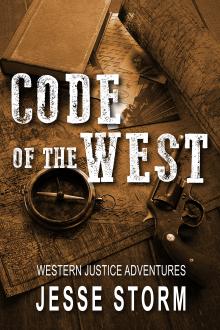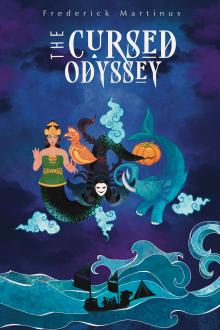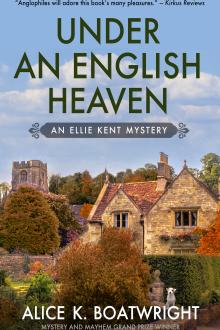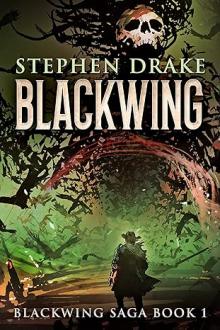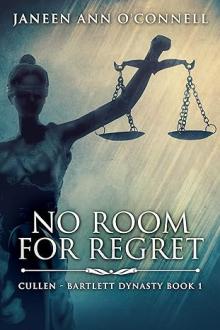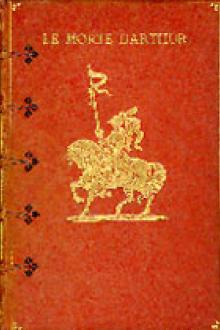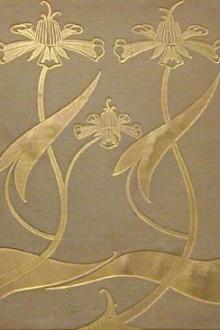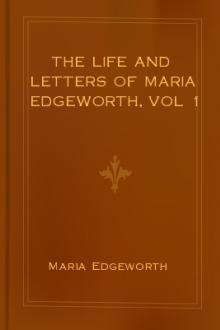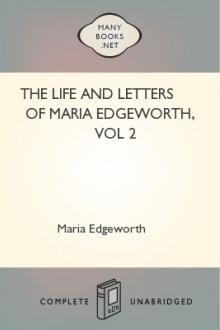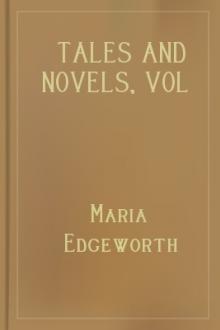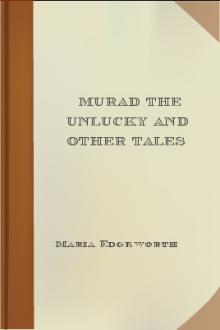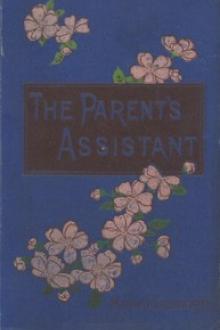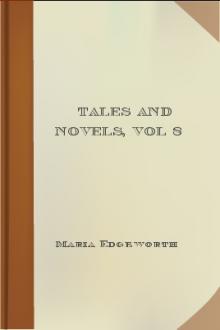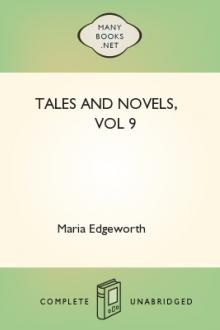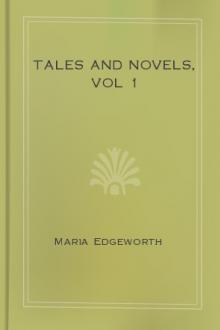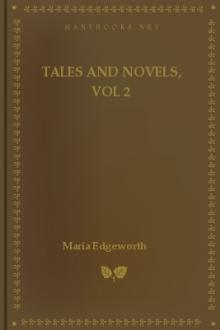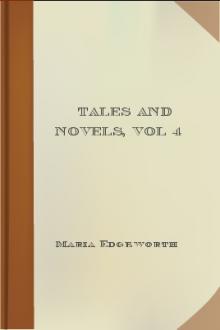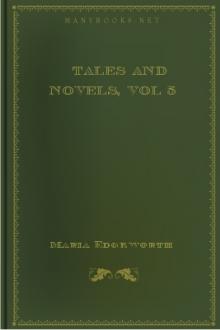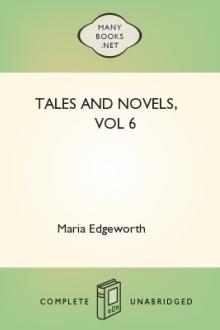The Absentee
The Absentee
Book Excerpt
worth, Miss Broadhurst selects from
her lovers one who 'unites worth and wit,' and then she goes on
to quote an old epigram of Mr. Edgeworth's on himself, which
concluded with,'There's an Edge to his wit and there's worth in
his heart.'
Mr. Edgeworth, who was as usual busy building church spires for himself and other people, abandoned his engineering for a time to criticise his daughter's story, and he advised that the conclusion of THE ABSENTEE should be a letter from Larry the postilion. 'He wrote one, she wrote another,' says Mrs. Edgeworth. 'He much preferred hers, which is the admirable finale of THE ABSENTEE.' And just about this time Lord Ross is applied to, to frank the Edgeworth manuscripts.
'I cannot by any form of words express how delighted I am that you are none of you angry with me,' writes modest Maria to her cousin, Miss Ruxton, 'and that my uncle and aunt are pleased with what they have read of THE ABSENTEE. I long to hear whether their favour continues to the end, and extends to th
FREE EBOOKS AND DEALS
(view all)Popular books in Fiction and Literature, Satire
Readers reviews
4.0
LoginSign up
Any commentary that describes Maria Edgeworth as "a few potatoes short of a bushel" cries out for rebuttal, compelling one to rise to the defence of this woman whose importance to Irish history and to the history of literature the reviewer seems unaware.
Maria Edgeworth's novels Castle Rackrent and The Absentee did much to "raise the consciousness" of the public to the plight of the tenant farmers in nineteenth-century Ireland. Her influence resounded in the political debate for decades afterward. In this regard, Edgeworth is no less important to Irish history than is Harriet Beecher Stowe to American history.
Wikipedia cites the scholarship of Kathryn J. Kirkpatrick as it notes that Edgeworth's Castle Rackrent "is often regarded as the first historical novel, the first regional novel in English, the first Anglo-Irish novel, the first Big House novel, and the first saga novel." Potatoes and bushels, indeed.
In her novels, Edgeworth placed much of the blame for the condition of the tenants on what we can call "rule from afar:" that human tendency to slide into casual misrule when distant from those whose lives one controls. History abounds with examples.
If the political ideology we see in the review has blinded the reviewer to this essential lesson of The Absentee, then that ideology serves him ill indeed.
Maria Edgeworth's novels Castle Rackrent and The Absentee did much to "raise the consciousness" of the public to the plight of the tenant farmers in nineteenth-century Ireland. Her influence resounded in the political debate for decades afterward. In this regard, Edgeworth is no less important to Irish history than is Harriet Beecher Stowe to American history.
Wikipedia cites the scholarship of Kathryn J. Kirkpatrick as it notes that Edgeworth's Castle Rackrent "is often regarded as the first historical novel, the first regional novel in English, the first Anglo-Irish novel, the first Big House novel, and the first saga novel." Potatoes and bushels, indeed.
In her novels, Edgeworth placed much of the blame for the condition of the tenants on what we can call "rule from afar:" that human tendency to slide into casual misrule when distant from those whose lives one controls. History abounds with examples.
If the political ideology we see in the review has blinded the reviewer to this essential lesson of The Absentee, then that ideology serves him ill indeed.
- Upvote (0)
- Downvote (0)
Lord and Lady Clonbrony are absentee Irish landowners, who live in London. Lady Clonbrony wants vary badly to be a respected member of London’s fashionable high society. She spends extravagant amounts of money hosting parties for their pleasure and puts forth her best English accent, yet they still look down upon her because… well, she’s Irish.
Meanwhile back in Ireland, Irish tenants suffer under greedy and unscrupulous agents who exploit them while their absentee masters are away in England, spending money foolishly, in order to be fashionable, yet they can’t be fashionable cause their Irish and so on, and so on.
So, sadly as a consequence, the peasants are left yearning for their masters to return, in order to be exploited directly thereby eliminating the middle men who profit unjustly.
But, who will stop this foolish cycle? -- Enter Lord Colambre, son of Lord and Lady Clonbrony, who departs for Ireland where he travels in disguise upon a quest to find his Irishness.
Well written, often humorous, somewhat satirical, but overly simplistic.
Edgeworth is humorous when she satirizes the vanity of English society. However, when she argues for the return of the gentry as the solution for Irish poverty?… she starts to sound like she may be a few potatoes short of a bushel.
Meanwhile back in Ireland, Irish tenants suffer under greedy and unscrupulous agents who exploit them while their absentee masters are away in England, spending money foolishly, in order to be fashionable, yet they can’t be fashionable cause their Irish and so on, and so on.
So, sadly as a consequence, the peasants are left yearning for their masters to return, in order to be exploited directly thereby eliminating the middle men who profit unjustly.
But, who will stop this foolish cycle? -- Enter Lord Colambre, son of Lord and Lady Clonbrony, who departs for Ireland where he travels in disguise upon a quest to find his Irishness.
Well written, often humorous, somewhat satirical, but overly simplistic.
Edgeworth is humorous when she satirizes the vanity of English society. However, when she argues for the return of the gentry as the solution for Irish poverty?… she starts to sound like she may be a few potatoes short of a bushel.
04/05/2009
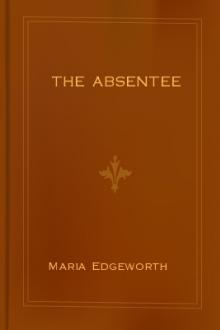
 Free Download
Free Download
